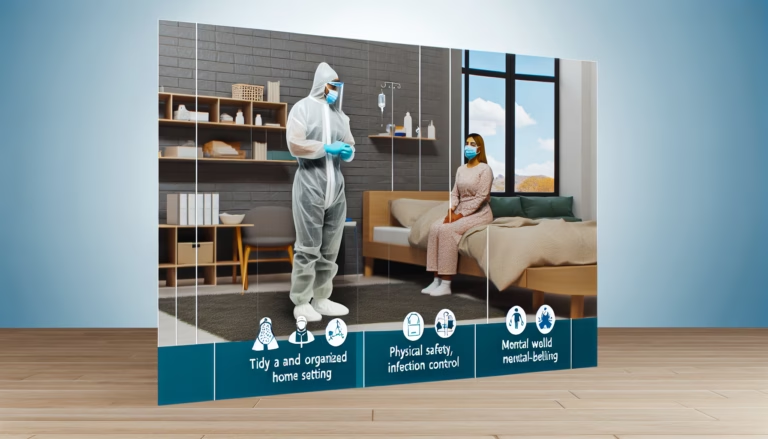Providing care in the comfort of a patient’s home has become increasingly common in recent years, primarily thanks to the growth of technologies that facilitate medical treatment, monitoring, and communication. Yet, many people remain uncertain about the level of care they can realistically manage at home. This article aims to dispel such concerns by highlighting 5 essential home health care strategies to manage chronic conditions effectively.
Develop a Comprehensive Care Plan
The first step in managing chronic conditions at home is to develop a comprehensive care plan. This should involve collaboration between the patient, family members, caregivers, and healthcare professionals. The plan should address the condition’s specific requirements, the patient’s daily routine, medication management, dietary needs, physical therapy, and periodic check-ups.
Invest in Home Health Care Technologies
Investing in home health care technologies can make managing chronic conditions more accessible and efficient. These technologies range from telemedicine platforms for consultations and monitoring systems to track health vitals and medication reminders. The appropriate technology will vary depending on the specific condition, but the essential goal should be to facilitate prompt and effective care.
Ensure Regular Monitoring and Assessment
Regular monitoring and assessment are critical in managing chronic conditions, particularly those that can rapidly change the health status. These may include diabetes, heart conditions, and chronic respiratory diseases. Regular monitoring helps to detect any health alterations promptly, enabling immediate intervention, while consistent assessments ensure that the care plan remains effective and modifies it if necessary.
Promote Lifestyle Modifications
Chronic condition management isn’t solely about medical treatments; it should also incorporate lifestyle modifications. These involve changes in diet, the inclusion of physical activity, stress management, and sleep hygiene. Each of these aspects plays a significant role in managing chronic conditions, and their integration into the care plan is essential.
Train Caregivers and Family Members
Lastly, caregivers and family members should receive training in managing the condition. They play a significant role in providing home health care, and their preparedness is critical. Training can equip them with skills such as correct medication administration, identifying symptom changes, understanding dietary requirements, and managing emergencies.
Conclusion
Managing chronic conditions at home may seem daunting initially, but with sound strategies and pragmatic application, individuals can lead a quality life without frequent hospital visits. Utilizing tech and non-tech resources alike, nailing down a comprehensive plan, and training and empowering care providers is the perfect recipe for home-based chronic care success.



